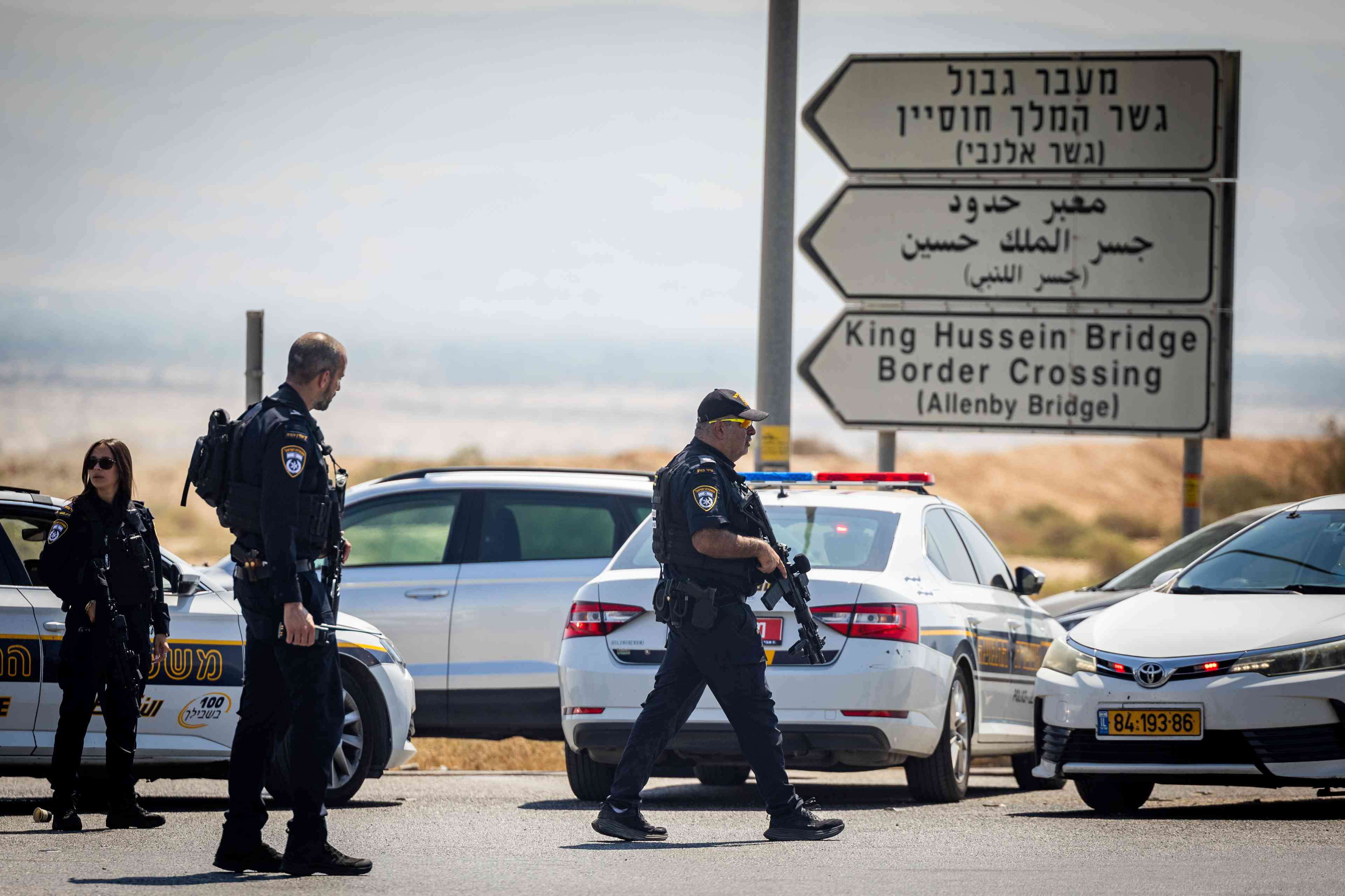Allenby crossing terrorist, Jordanian mass rallies
Siding with terror: protests in memory of Allenby terrorist take place across Jordan
Largescale rallies in Jordan honoring the terrorist Allenby Crossing are encouraging terrorism. Rallies around the Hashemite Kingdom see demonstrators endorsing the "heroic deed" committed by the terrorist who killed three Israelis.


Over the weekend, there were largescale gatherings in Jordan honoring terrorist Maher alJazi, who was responsible for the gun attack at the Allenby Crossing earlier this month that claimed the lives of Yochanan Shchori, 61, Yuri Birnbaum, 65, and Adrian Marcelo Podsmesser, 57.
The rally in Amman, titled "We are walking along on the path of the shaheed Maher al-Jazi," was organized, according to the Al-Araby Al-Jadeed newspaper. The attendees declared their "pride in the shaheed Maher al-Jazi, their support for the resistance by all means and their solidarity with Gaza and the West Bank in the face of Israeli aggression, and called to follow his path in the confrontation with the ongoing Israeli aggression."
Participants at an Aqaba rally declared their admiration for the terrorist's "act of heroism" in which he "fought Zionism in support of the blood of the shaheeds in Gaza City."
The provinces of Zarqa and Irbid also hosted such demonstrations.
The relevant Jordanian authorities "are closely following investigations into the shooting incident involving a Jordanian citizen on the Palestinian side of the King Hussein Bridge," the Jordanian Foreign Ministry said in a meek condemnation of the terrorist attack at the Allenby Crossing.
According to Ambassador Dr. Sufyan Qudah, a spokesman for the ministry, "preliminary investigations show the incident was an individual act, which also led to the death of the shooter."
The Ministry reaffirmed its position that "violence and the targeting of civilians for any reason are unacceptable and must be condemned, underlining the need to address the underlying reasons and de-escalation measures that fuel such episodes."
The 1994 peace accord between Jordan and Israel is opposed by a large portion of the local population.
Furthermore, the majority-Islamist Jordanian parliament continues to be anti-Israel, and its members have called for the revocation of the peace deal on multiple occasions.
An earlier request to organize a committee to review all official relations with Israel, including the peace deal, was approved by the Jordanian parliament.
The government, the royal palace, and the council that advises Jordan's King Abdullah II must all approve such a move, thus it does not automatically mean that the peace agreements with Israel will be revoked.
Join our newsletter to receive updates on new articles and exclusive content.
We respect your privacy and will never share your information.
Stay Connected With Us
Follow our social channels for breaking news, exclusive content, and real-time updates.
WhatsApp Updates
Join our news group
Follow on X (Twitter)
@JFeedIsraelNews
Follow on Instagram
@jfeednews
Never miss a story - follow us on your preferred platform!